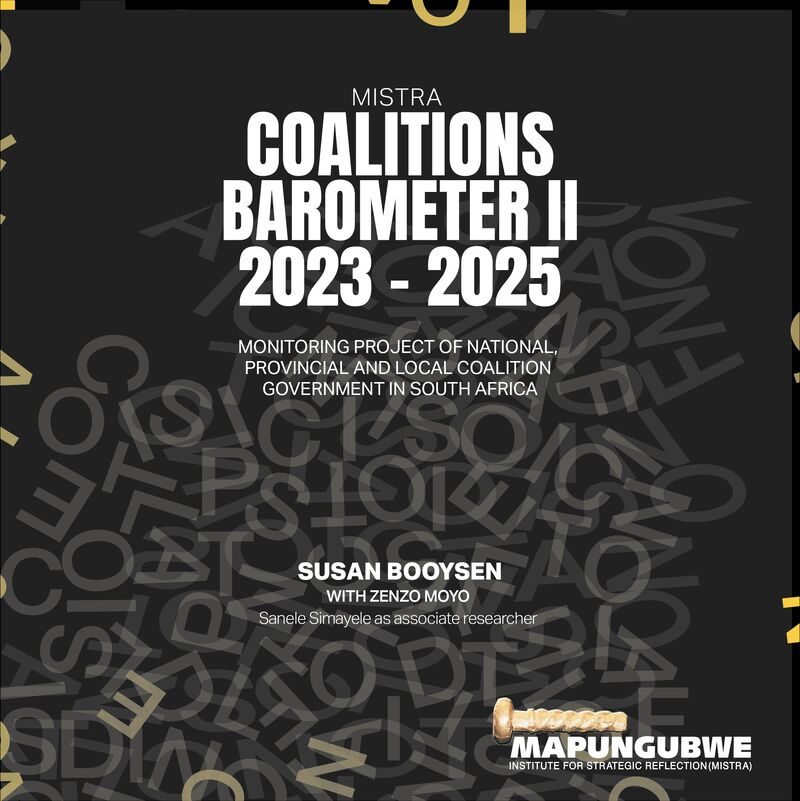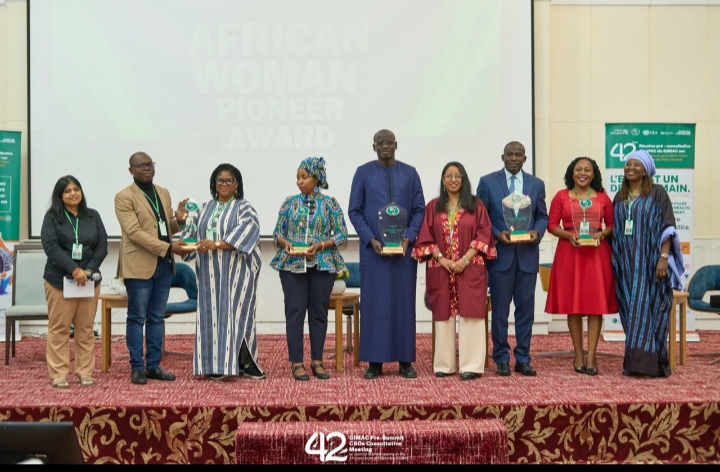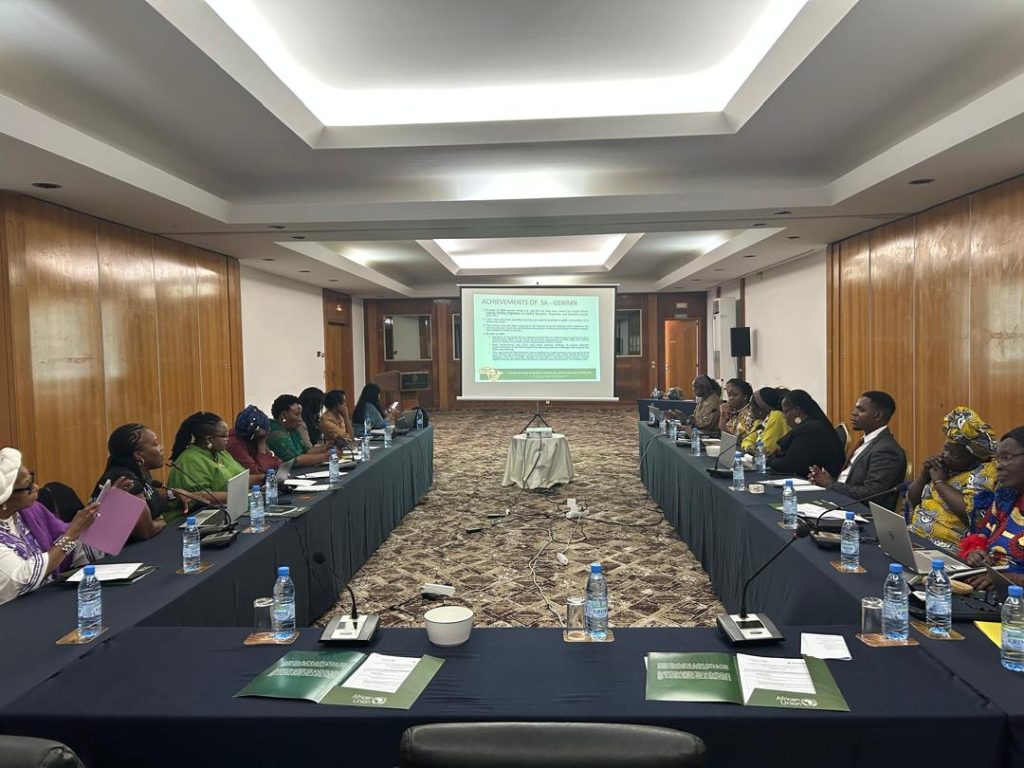On 12 August 2025, the Mapungubwe Institute for Strategic Reflection (MISTRA) officially launched the second edition of its Coalitions Barometer II (2023–2025), a landmark report that provides an in-depth analysis of the rise and trajectory of coalition governments across South Africa between the periods of 2023 to 2025. The publication comes just over a year after the watershed 2024 general elections, which marked the end of three decades of single-party dominance to a multi-party governance, beginning of a new phase in South Africa’s democratic evolution defined by coalition governance at national, provincial, and local levels. The barometer offers a comprehensive assessment of the shifting political landscape following the ANC’s electoral decline to 40.2% of the national vote in 2024, which led to the formation of a Government of National Unity (GNU). The barometer notes that, while the ANC retains a dominant role within the coalition, it continues to struggle with the complexities of equitable power-sharing, especially in relation to the DA. Tensions over key policy areas such as VAT increases, national health insurance, land expropriation, and language education have tested the cohesion of the GNU, with the VAT increase crisis in early 2025 nearly pushing the coalition to a breaking point. However, by April 2025, a reset was initiated, with the ANC increasingly engaging smaller parties to sustain a majority in Parliament potentially recalibrating its reliance on the DA.
At the provincial level, coalition politics has taken root in Gauteng, KwaZulu-Natal, and the Northern Cape following the 2024 elections. Each province reflects unique dynamics: in Gauteng, the ANC leads a minority coalition supported by a confidence-and-supply arrangement with the EFF, with the DA refusing executive participation due to perceived inequities in power-sharing. KwaZulu-Natal presents a more collaborative model, where the IFP, as the largest party, governs alongside the ANC, DA, and National Freedom Party (NFP). In the Northern Cape, the ANC fell one seat short of a majority and now relies on informal agreements with the Freedom Front Plus (FF+) and the Patriotic Alliance (PA) to maintain stable governance. While these provincial coalitions mirror broader national trends, they also demonstrate a degree of independence and adaptability in how power-sharing is structured and maintained. Thus far, incidents of provincial instability and coalition collapse have remained limited, with governance continuing relatively smoothly.

The barometer also tracks developments at the local government level, where coalition governance has become increasingly widespread. Although the ANC has regained significant ground through alliances with the EFF and smaller parties, local coalitions remain fragile and prone to disruption. Improvements in coalition durability are noted compared to previous cycles, but service delivery remains a major concern. Poor financial management, decaying infrastructure, weak income bases, and inadequate administrative capacity continue to plague municipalities regardless of whether they are governed by coalitions or single-party councils.
The barometer is highly relevant to ACCORD’s ongoing work in implementing the project, “Contributing towards Sustainable Coalitions at Local Government Level in South Africa.” The project, funded by the Embassy of Ireland, seeks to strengthen governance structures and foster democratic engagement at the local government level, ultimately contributing to the stability and sustainability of coalitions. ACCORD’s participation in the launch underscores this ongoing commitment towards supporting sustainable coalition governance at the local government level through focused research and capacity building. This includes facilitating workshops and dialogues that enhance collaboration between political leaders and community representatives. A central element of this work is the Coalition Tracker. This online platform provides real-time updates on changes in coalition-led municipalities tracking council compositions, by-election outcomes, and shifts in political control.
In conclusion, MISTRA’s Coalitions Barometer II highlights South Africa as undergoing a significant phase of political transition. Coalition governance is no longer temporary but is evolving into a mainstream model across all levels of government. The launch brought together various stakeholders from civil society, think tanks, media personnel, and other groups.








